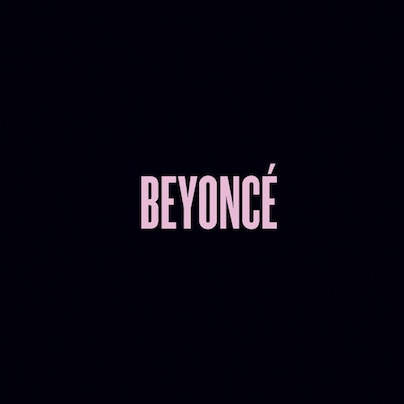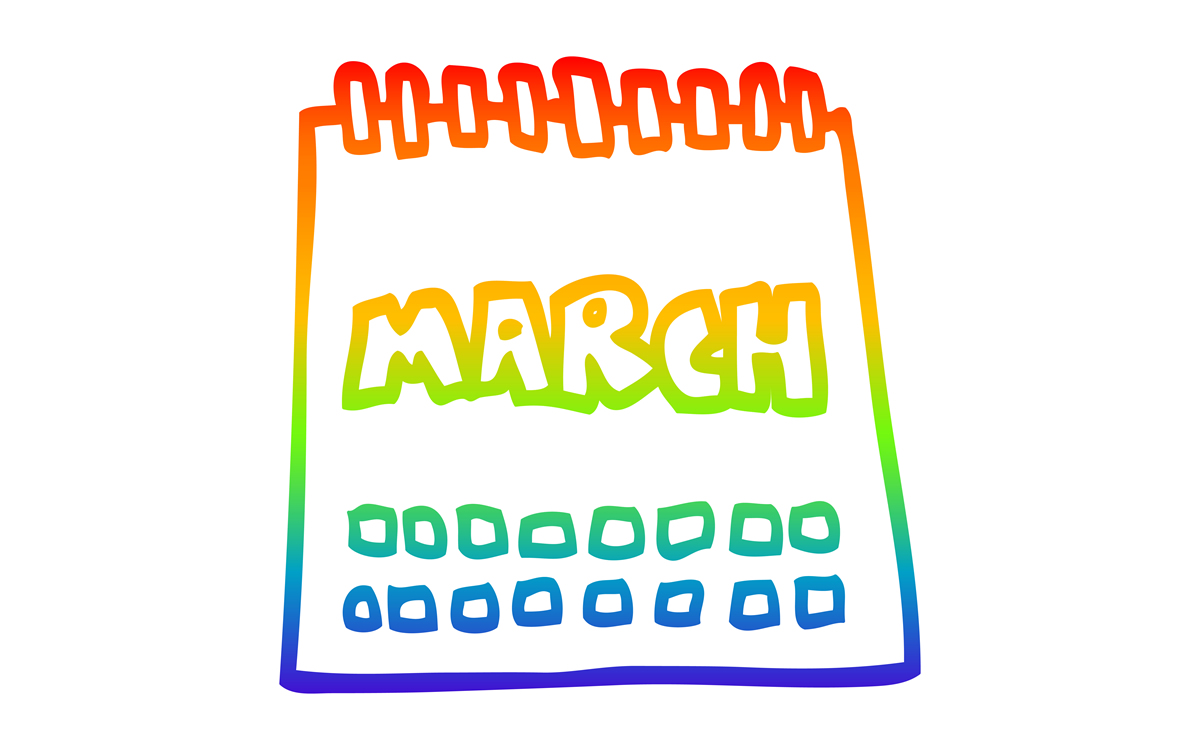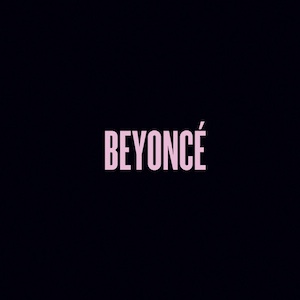Arts & Entertainment
Beyonce’s surprise
Diva’s new ‘video album’ a risky game changer

To the surprise of her fans, Beyoncé Knowles released her fifth studio album on iTunes on Dec. 13 with no promotion. An intimate and powerful artistic step, the self-titled album “Beyoncé” could easily be a musical standard bearer for years to come.
The “video album,” as Knowles refers to it, contains 14 tracks and 17 music videos and was recorded mostly in secret. In July, Diplo revealed to the UK’s The Sun that he worked on two songs with Knowles that were ultimately scrapped, but details on the full album remained a mystery.
Fueled by the excitement of a surprise release, “Beyoncé” sold about 828,000 copies in just three days, breaking an iTunes record for most albums sold in the first week, previously held by Taylor Swift’s “Red.” The three-day sales figure also doubled the first week sales of her previous album “4” (2011).
Often deep and sometimes dark, “Beyoncé” is an exploration into life with her husband Jay-Z and their daughter. It’s also rife with feminist themes, not unusual for Knowles.
The album opens with “Pretty Hurts,” which addresses the physical and emotional trauma women endure while trying to adhere to impossible standards of beauty. While it may seem like Beyoncé is revisiting “girl power” themes from earlier hits like “Single Ladies” and “Run the World (Girls),” “Pretty Hurts” aims to inspire rather than excite young women by stressing the importance of happiness over beauty.
“***Flawless,” a Southern hip-hop track, samples a TEDxEuston speech by Nigerian writer Chimamanda Ngozi Adichie. The accompanying speech adds significance to Bey’s authoritative line “Bow down, bitches,” an assertion of her power as an independent woman, with a comment on the double standards women face.
The lead single “XO” is an uptempo pop tune and has all of the makings of a radio hit. Conversely, “Haunted” is not poised to enjoy the same success. It’s one of the more experimental songs and criticizes the record industry, but the vocals in the hook are ethereal. The accompanying video is artistic and creepy, complementing the song well.
A potential crossover hit is “Drunk In Love,” a duet with her husband Jay-Z. The song is one of several on the album depicting the sexual relationship music’s biggest power couple enjoys. Between her singing and his rapping, the song has potential for both the Top 40 and R&B charts.
“Blow” immediately follows the duet and is equally explicit. A mod- and funk-inspired dance track, it’s quickly and justifiably become a fan favorite. It’s fun, catchy and the bridge turns the song from a ‘70s throwback to a modern pop hit. The music video is a must see for, if no other reason, the impressively well-coordinated glow-in-the-dark dance sequence.
“Partition” is a tough hip-hop track that contains the hilariously sexual line “He Monica Lewinsky-ed all on my gown.” The song stays true to the album’s themes and includes a section in French defending female sexuality. It also seems to introduce a new alter-ego named Yoncé, a tougher figure to replace Sasha Fierce, a personality Beyoncé “killed” years ago.
In “Mine,” which features Drake, Beyoncé opens up about her postpartum depression and marital issues. Beyoncé and Drake’s vocals complement each other well in a back-and-forth that melds together in the hook.
The last two tracks are the most emotional. “Heaven” is a haunting and somber ballad about the death of a loved one. The song alludes to the miscarriage Beyoncé suffered during her first pregnancy, detailed in her HBO documentary “Life Is But a Dream” and referenced in the Jay-Z song “Glory.”
If “Heaven” tore listeners down, the final track, “Blue,” will bring on tears of joy. The song is an ode to her daughter Blue Ivy, and the vocal performance is incredible by even Bey’s standards. The song itself is an intimate expression of love, capturing a moment of pure joy Beyoncé experiences as she holds her daughter.
Overall, the album is deep, powerful, and a defining moment in Beyoncé’s career in the same way “Ray of Light” was for Madonna. Without sacrificing her mass appeal or playful rhythms, Beyoncé has created a mature, innovative opus. She ranges from light and bubbly to deep and soulful, and no moment feels out of place.
Out & About
Plan your wedding the LGBTQ way
Washington D.C. LGBTQ+ Wedding Expo scheduled for Sunday

Rainbow Wedding Network will host “Washington D.C. LGBTQ+ Wedding Expo” on Sunday, March 1 at 12:30 p.m.
Guests can meet and mingle with a curated selection of LGBTQ-welcoming wedding professionals from across the region, each ready to help bring your vision to life, and spend a beautiful afternoon exploring everything they need to create a celebration that reflects them.
There will be a relaxed, self-guided look at the Watergate’s spaces and amenities, savor signature cocktails and delicious tasting samples, and connect with other couples who are on the same journey.
Visit Eventbrite to reserve a spot.

Friday, February 27
Center Aging Monthly Luncheon With Yoga and Drag Bingo will be at 12 p.m. at the DC Center for the LGBT Community. Email Mac at [email protected] if you require ASL interpreter assistance, have any dietary restrictions, or questions about this event.
Go Gay DC will host “LGBTQ+ Community Happy Hour Meetup” at 7 p.m. at Freddie’s Beach Bar and Restaurant. This is a chance to relax, make new friends, and enjoy happy hour specials at this classic retro venue. Attendance is free and more details are available on Eventbrite.
Trans Discussion Group will be at 7 p.m. on Zoom. This group is intended to provide an emotionally and physically safe space for trans people and those who may be questioning their gender identity/expression to join together in community and learn from one another. For more details, email [email protected].
Saturday, February 28
Go Gay DC will host “LGBTQ+ Community Brunch” at 11 a.m. at Freddie’s Beach Bar & Restaurant. This fun weekly event brings the DMV area LGBTQ+ community, including allies, together for delicious food and conversation. Attendance is free and more details are available on Eventbrite.
The DC Center for the LGBT Community will host “Sunday Supper on Saturday” at 2 p.m. It’s more than just an event; it’s an opportunity to step away from the busyness of life and invest in something meaningful, and enjoy delicious food, genuine laughter, and conversations that spark connection and inspiration. For more details, visit the Center’s website.
Black Lesbian Support Group will be at 1 p.m. on Zoom. This is a peer-led support group devoted to the joys and challenges of being a Black lesbian. You do not need to be a member of the Beta Kappa Chapter or the Beta Phi Omega Sorority in order to join, but they do ask that you either identify as a lesbian or are questioning that aspect of your identity.Send an email to [email protected] to receive the zoom link.
Sunday, March 1
LGBTQ+ Community Coffee and Conversation will be at 12 p.m. at As You Are. This event is for people looking to make more friends and meaningful connections in the LGBTQ community. Attendance is free and more details are available on Eventbrite.
Monday, March 2
“Center Aging: Monday Coffee Klatch” will be at 10 a.m. on Zoom. This is a social hour for older LGBTQ+ adults. Guests are encouraged to bring a beverage of choice. For more information, contact Adam ([email protected]).
Tuesday, March 3
Universal Pride Meeting will be at 7 p.m. on Zoom. This group seeks to support, educate, empower, and create change for people with disabilities. For more details, email [email protected].
Wednesday, March 4
Job Club will be at 6 p.m. on Zoom upon request. This is a weekly job support program to help job entrants and seekers, including the long-term unemployed, improve self-confidence, motivation, resilience and productivity for effective job searches and networking — allowing participants to move away from being merely “applicants” toward being “candidates.” For more information, email [email protected] or visit www.thedccenter.org/careers.
Center Aging Women’s Social and Discussion Group will be at 6 p.m. on Zoom. This group is a place where older LGBTQ+ women can meet and socialize with one another. There will be discussion, activities, and a chance for guests to share what they want future events to include. For more information, email [email protected].
Thursday, March 5
The DC Center’s Fresh Produce Program will be held all day at the DC Center for the LGBT Community. People will be informed on Wednesday at 5 p.m. if they are picked to receive a produce box. No proof of residency or income is required. For more information, email [email protected] or call 202-682-2245.
Virtual Yoga Class will be at 7 p.m. on Zoom. This free weekly class is a combination of yoga, breathwork and meditation that allows LGBTQ+ community members to continue their healing journey with somatic and mindfulness practices. For more details, visit the DC Center’s website.
a&e features
Transmission DC breathes new life into a storied sound space
A fresh home for boundary-pushing culture on H Street

Late last year, phoenix-style, a fresh home for boundary-pushing culture arose on the H Street corridor. Transmission DC – a queer, trans, and POC-owned, operated, and centered community-focused venue – powered on in the former home to the Rock & Roll Hotel (famously, not a hotel, but very much rock & roll). Transmission (1353 H St., N.E.) arrives secure in its mandate – or even birthright – to provide a place to celebrate creativity and music through a lens of inclusivity and respect.
Transmission’s team brings experience, but also representation. Owners/partners Kabir Khanna (who is also programming director), Katii B, Ellie McDyre, and Kelli Kerrigan together previously managed 618 productions, a venue in Chinatown, crafting “some of D.C.’s freakiest parties, raves, and mosh pits” they note.
They packed up operations last fall to a space curated specifically for D.C.’s underground music and culture scene, building their efforts in Chinatown to bring in more fans in queer and POC circles.
Transmission, Khanna points out, is built on DIY values. In the music scene, DIY means that promoters and organizers – often disconnected from the mainstream and part of marginalized communities – build shows and programs collaboratively, but independently from institutions, supporting each other as smaller, independent venues close. Here, Transmission aims to ensure that those putting together these underground inclusive shows have a more permanent and stable home, can have access to resources, and can provide more sustainable income to artists. “We’re trying to get more people to support and enjoy the music, and also give artists and organizers within the DIY community more structure and a larger cut,” says Khanna.
Khanna also notes that Transmission operates “under the principles of safety, inclusivity, and respect.” McDyre added that even at venues that claim inclusivity, that statement might not take place in practice. We’re “not just pitting up a rainbow flag,” says McDyre, but as some of the owners are trans and POC, audiences can see themselves reflected at the top.
Much like the DIY nature of the music community, the Transmission owners brought a DIY ethos to turning around their space.
In March 2020 – the height of COVID lockdowns – Rock & Roll Hotel suddenly shuttered, though not due to the pandemic; instead, the venue claimed that decreasing sales and increasing competition led to the closure. For 14 years, it was the central spot for cheap beer and lesser-known and celebrated acts. The space stood vacant for more than five years, until Transmission turned the power back on.
“When we got into the space, it was effectively abandoned for years,” says Khanna. “There was a ton of mold, and paint primer covering all surfaces. It was nearly falling apart.” Khanna noted that many music venues like this one, regardless of how well it was maintained, “get the shit kicked out of it,” given the nature of shows. The team called in mold removal contractors, ripped up most of the floorboards, and started fresh.
Transmission’s first floor is styled as a stripped-down black box: the better to take in the music. “It’s minimal on purpose to act as a canvas for set design and music,” without a specific aesthetic, says Khanna. Moving upstairs, the second floor has been opened up, removing some walls, and now has a larger dance area than the first floor. Beyond the first two performance levels, and a holdover from Rock & Roll Hotel, is the rooftop. Though without a stage, the rooftop space is filled with murals splashed across the walls, with a full bar. Transmission’s current capacity is 496, but the team is looking to grow that number. Transmission will also leverage the full kitchen that Rock & Roll Hotel operated, bringing in Third Hand Kitchen to offer a variety of food, including vegan and vegetarian options.
Khanna pointed out an upcoming show reflective of Transmission’s inclusive ethos: Black Techo Matters on Feb. 27. The event is set to be “a dynamic, collaborative night of underground electronic music celebrating Black History Month.” Khanna says that techno came from Black music origins, and this event will celebrate this genesis with a host of artists, including DJ Stingray 313, Carlos Souffront, and Femanyst.





















